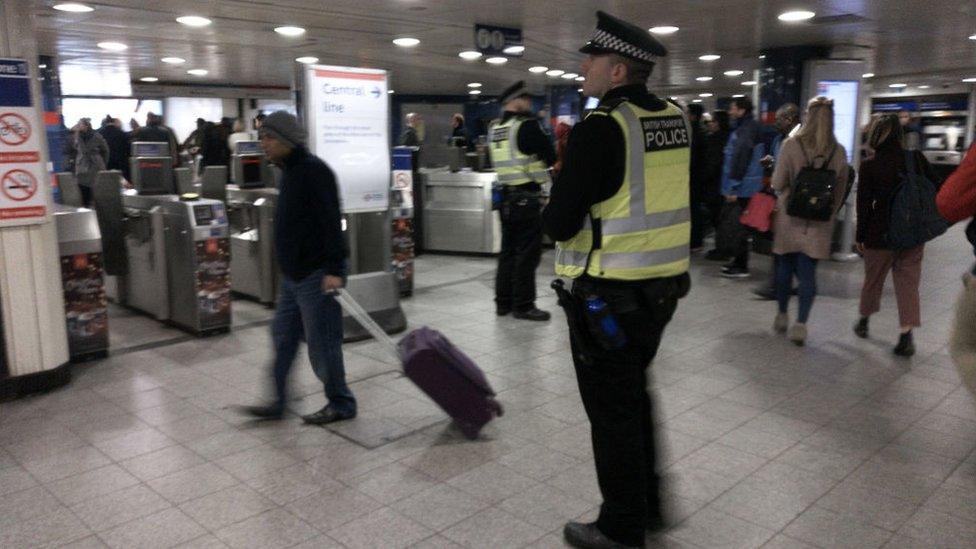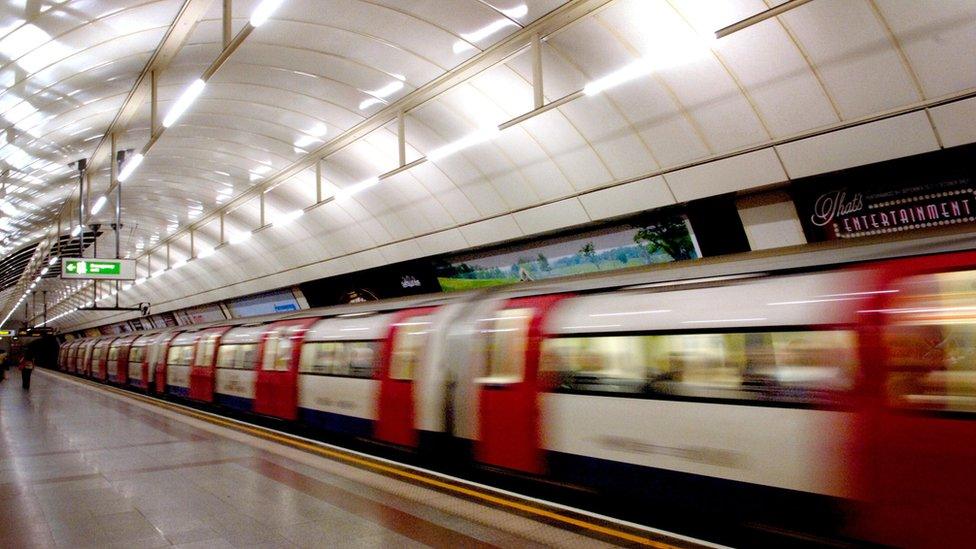Tube patrols create 'phantom policing' effect, study finds
- Published

Recorded crime fell 14% during the six-month study in stations treated with patrols
Police patrols at London Underground stations can reduce crime by up to a fifth, a study has shown.
Cambridge University research suggests four 15-minute patrols per day at crime hotspots created a "phantom effect" lowering crime throughout the day.
During the study, platforms without patrols had 3,549 calls to police compared to 2,817 in the stations receiving policing - a 21% difference.
The findings have "implications" for policing priorities, researchers say.
The report , externalfound recorded crime fell 14% compared to the six months prior to the experiment.
"This phantom effect suggests that crime declines when potential offenders are apprehensive about a possible police presence based on recent patrolling patterns - even when there are no police in the vicinity," study co-author Prof Lawrence Sherman said.
"In London stations, it may be that more professional kinds of offenders are particularly sensitive to changes in police presence, such as pickpockets and distraction thieves."

The study found more crime and calls to police were reported on tube platforms between Wednesday to Saturday.
The team targeted "hot spots" - areas where crime is more concentrated - by ranking stations based on the previous year's crime rates.
Uniformed British Transport Police (BTP) officers were deployed to areas during spikes in crime.
Twenty BTP officers were selected and trained to work exclusively on patrolling the platforms.
Previous data showed the sample platforms had experienced more crime and calls to police from Wednesday to Saturday between 15.00 GMT and 22.00.
The vast majority of reduction in both crime and calls for assistance occurred when these police patrols were absent.
Criminologists have dubbed this the "London Underground paradox".
The researchers also found "regional" effects: crime in the rest of the station fell almost as much as crime on platforms during the four days when regular patrols were deployed.